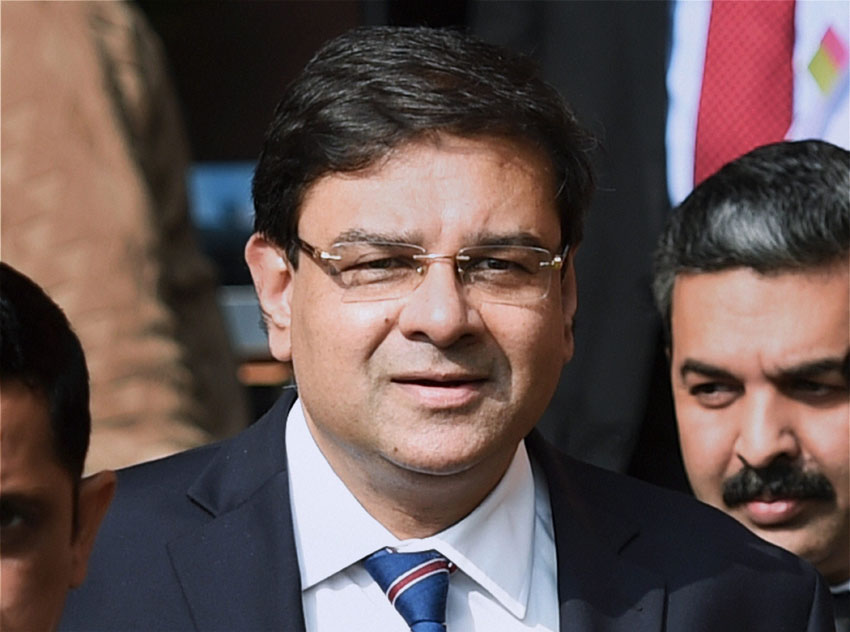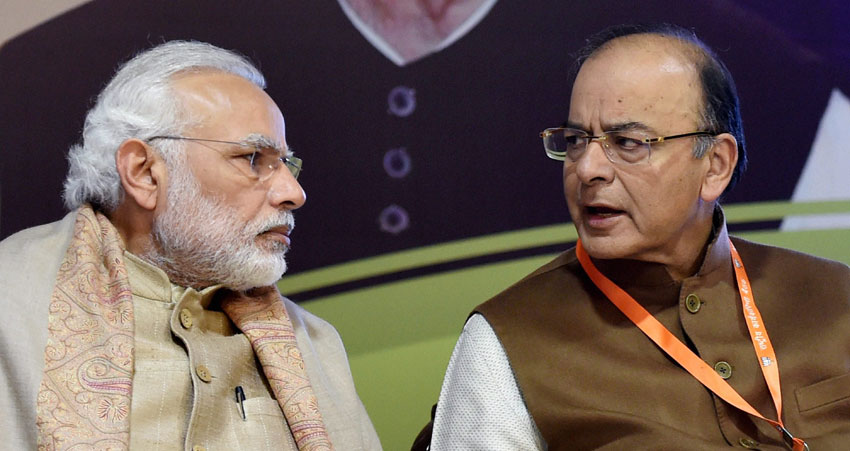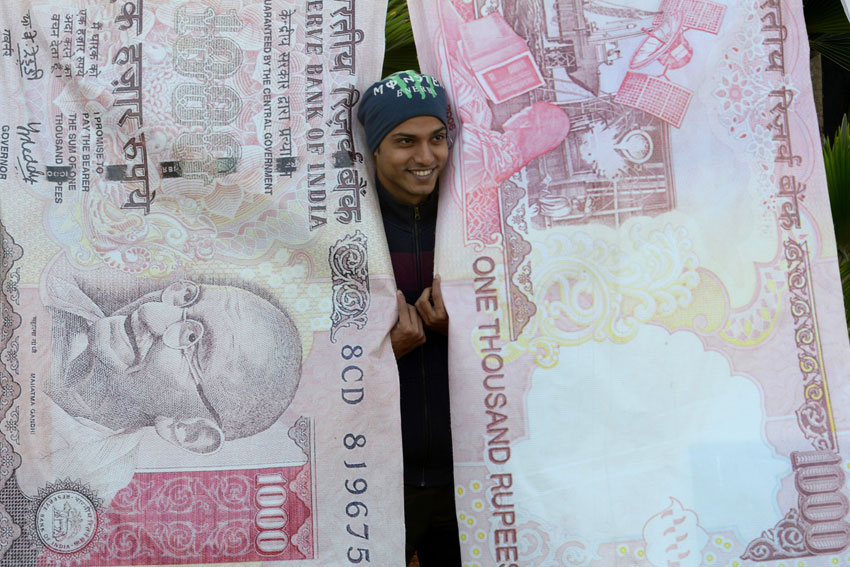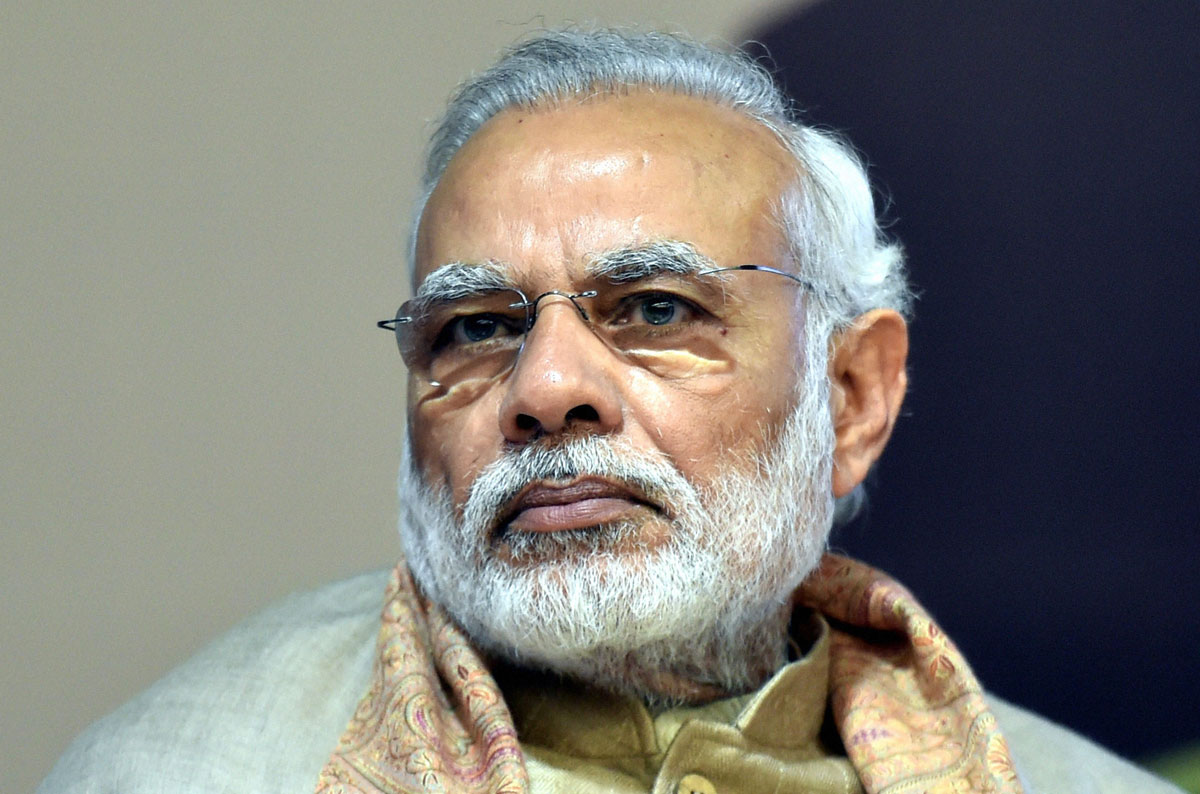More Pain, Less Gains – Anti “Dark Economy” Drive Leads To Dark Days
Prime Minister Narendra Modi at the BJP National Executive Meeting in New Delhi, Jan. 6. (Manvender Vashist/PTI)
Come January 2017 and India is still struggling with hardships caused by the inefficient implementation process of demonetization of higher denomination currency, Rs.1, 000 and Rs.500, put in place since the evening of November 8, 2016. As the deadline for exchange of notes came to an end, Dec. 30, banks ended up with almost 97% of demonetized currency notes returned during the period. This translates into a neat Rs.14.97 trillion or $220 billion. If this information that finds mention in a Bloomberg report and as claimed to have “sourced from bank officials” is accurate then it puts to question the entire rigmarole that the nation has been made to go through, writes Priyanka Bhardwaj. – @Siliconeer #Siliconeer #India #Demonetisation #Demonetization #NaMo #NarendraModi @NaMo @Narendramodi #IndianCurrency
Politically speaking, the Modi government has received immense flak from the opposition and allies of the ruling National Democratic Alliance as the Shiv Sena minced no words to denounce the move and likened it to the fear-induced-dark-days of the British Raj.
The opposition has vehemently demanded a committee to scrutinize the whole process and present a White Paper to the Parliament.
Institutions such as the Center for Monitoring Indian Economy state that the impact is also felt on the pace of new announcements of investment proposals that are almost two-thirds to what it were in pre-note-ban months and economists of all hues too have spoken of negative economic impacts in the short term.
In the common parlance the note ban has been unable to rein in inflation even by a decimal point and consumer sentiment too remains badly hit, dropping by an exceptional nine times, as concluded by a survey called Buying Propensity Index conducted by TRA.
Lines at ATMs have ceased to disappear and banks still face cash crunch.

And unimaginable is the pain of poor and deprived sections who live out of the systems of banking world and thus are illiterate of ways and means of new policies, and always “shooed away” as “irritants and unwanted” especially in times when every bank staff is overworked.
For these people the much anticipated New Year Eve nationwide address by Prime Minister Narendra Modi meant no relief as the PM could be seen defending his demonetization drive that aimed to weed out corruption, quell terror activities and slow down the narcotics trade.
The speech focused on binaries of demonetization, the good outcomes and the need to weed out the evil black money through a war by the citizen-soldiers.
Apart from the token offers of interest rate waivers for senior citizens and cash benefits for pregnant women there was no relief or support and not a mention of the lives lost in the chaos and ordeal of queuing up at banks and ATMs, the plight of elderly, poor, marginal, laborers, and farmers who were pushed to their wits end to exchange old notes and withdraw their hard-earned meager savings, untold misery of employees who failed to receive their salaries or wages as cash became less and the hundreds of thousands rendered jobless and hungry when many sectors disappeared.
It is yet to be ascertained how beneficial has been the drive of demonetization to this huge chunk of humanity that has borne the yoke.
Equally unfathomable is how a vast economy can be switched to a digital payment one in one leap, albeit with the lure of prizes and discounts for every transaction.

Touching on this very concern, Indian President Pranab Mukherjee, in his address to the Governors and Lt Governors through video-conferencing from Rashtrapati Bhavan in Delhi, stressed that extra care of the poor has to be the foremost priority of the government, particularly when the country cannot escape an economic slowdown in the post demonetization period.
It is important to heed the message of the President who has been the Finance Minister of the country for more than once.
Clearly hinting at Modi to view his drive from the human angle he emphasized that helpless, poor citizens should never be treated as ‘conscripted soldiers’ when it comes to fighting the scourge of black money, not of their making, but to be uplifted from their pitiful, hassled lives.
The remark of the President comes after the entire demonetization exercise has been described by the PM as a ‘crusade’ but one which has inflicted more pains on the poor who are the victims of black money in the first place, rather than the real hoarders and generators of black money.
Yet, praise for demonetization has come in from unexpected quarters—an eastern state, Bihar’s Chief Minister Nitish Kumar, who in return has earned the approval from Modi for his alcohol prohibition policy implemented since last year.

As five states go to polls next month and given the extremely fluid state of their polity demonetization is expected to further divide the voters into those who perceive it as an anti-black money drive, and those who have been adversely impacted by the note ban and thus encourage adopting pro-BJP and anti-BJP stances.
If the BJP is able to create a hope that the money recovered by the government via demonetization is pumped into good initiatives and Jan Dhan accounts then it could also be a win-win scenario for the party that holds power at the center.
It is therefore imperative that citizens, rather than votes, be treated as the component for healthy functioning of a democracy and Modi must do well to account for the legitimacy of his policies and not bracket the pains of the citizens as some statistical data.
Till the time of filing this story I came upon countless individuals including poor persons who have retrieved sums of old money from some corner of their homes, after the deadline of December 30, and are holding on to their hard earned currency with the hope of some providential rule enabling an exchange at a later date.
As a necessary relief measure the PM needs to make an unambiguous statement on the extension of deadlines for exchange of old notes for every citizen, with designated officials enabling the filling up of declaration forms if needed, and seeing to it that this rule is followed to the tee.
(Important Note: As of January 6, 2017, the Reserve Bank of India and its various branches are exchanging old notes of Non Resident Indians and Persons of Indian Origin till June end. As for the citizens who were traveling abroad in the period November 8 and December 31 last year, the deadline for exchange is March end.)


